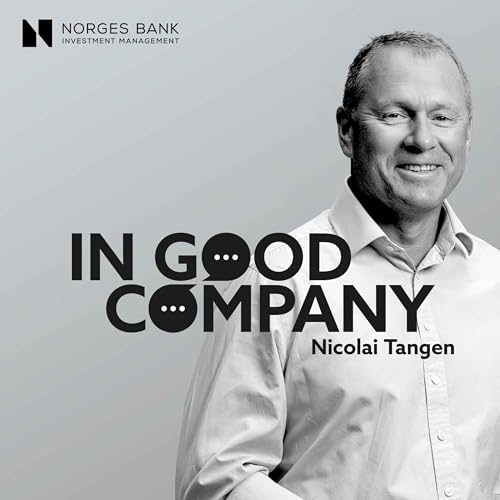Trump Tariffs And Global Investment: Insights From Nicolai Tangen's Approach

Table of Contents
The Impact of Trump Tariffs on Global Investment Landscapes
The Trump tariffs created a perfect storm for global investors. Increased uncertainty and disrupted supply chains became the new norm.
Disrupted Supply Chains and Increased Uncertainty
- Automotive industry: Tariffs on steel and aluminum significantly impacted auto manufacturers, increasing production costs and leading to price hikes.
- Technology sector: Tariffs on Chinese electronics and components forced companies to seek alternative suppliers, often at higher costs and with longer lead times.
- Agricultural sector: Trade disputes with key agricultural partners disrupted exports and created significant volatility in commodity prices.
This uncertainty led to increased market volatility, making it challenging for investors to predict returns and hindering long-term investment planning. Investor hesitancy grew as risk premiums increased, reflecting the challenges of navigating a rapidly changing trade environment.
Shifting Investment Strategies in Response to Tariffs
Companies responded to the tariffs by adapting their investment strategies in several ways:
- Diversification: Businesses diversified their supply chains, sourcing materials and components from multiple countries to reduce reliance on any single nation.
- Reshoring/Nearshoring: Many companies relocated manufacturing facilities back to their home countries or to nearby nations, mitigating tariff risks and improving supply chain resilience.
- Regionalization: A shift towards regional trade blocs and partnerships emerged, fostering greater economic integration within specific geographic areas.
These adjustments, while sometimes costly and complex, underscore the proactive measures taken by businesses to navigate the challenges presented by the Trump tariffs.
Nicolai Tangen's Investment Philosophy and its Relevance
Nicolai Tangen, with his extensive experience in finance and investment, offers valuable insights into managing investment portfolios in periods of global economic uncertainty.
Overview of Nicolai Tangen's Investment Background and Strategies
Tangen, before leading NBIM, built a successful career in the hedge fund industry, renowned for his long-term value investing approach. His philosophy incorporates strong Environmental, Social, and Governance (ESG) considerations, prioritizing sustainable and responsible investments.
Analyzing Tangen's Approach in the Context of Trump Tariffs
Tangen's focus on long-term value investing likely allowed him to weather the tariff-related volatility. His approach might have involved:
- Identifying undervalued assets: The market turmoil created opportunities to acquire undervalued companies affected by the tariffs.
- Strategic diversification: NBIM's global reach allows for significant diversification, mitigating the impact of any single tariff.
- ESG integration: Focusing on ESG factors could have led NBIM to prioritize companies demonstrating resilient supply chains and ethical sourcing, minimizing exposure to tariff-related risks.
Case Studies: Specific Examples of Investment Decisions Influenced by Tariffs
Examining specific examples of investment decisions helps illuminate both successful and unsuccessful responses to the tariff environment.
Successful Navigations of Tariff-Related Challenges
Companies that successfully adapted often shared characteristics: agile supply chain management, diversified sourcing, and a forward-looking approach to risk mitigation. Their proactive strategies allowed them to not only survive but thrive in the challenging trade environment.
Lessons Learned from Failed Strategies
Conversely, companies that failed to adequately adapt often experienced significant losses. These failures highlight the crucial need for proactive planning, flexibility, and a clear understanding of global trade dynamics. Underestimating the long-term impact of tariffs proved particularly detrimental.
The Role of ESG Factors in Investment Decisions during the Tariff Era
The Trump tariffs highlighted the importance of ESG factors in investment decisions. Companies prioritizing sustainable practices and ethical sourcing often demonstrated greater resilience, as their diversified supply chains and robust risk management strategies proved better equipped to handle the changing landscape.
Conclusion: Understanding Trump Tariffs and Global Investment: Key Takeaways and Future Outlook
The Trump tariffs served as a stark reminder of the impact of trade policy on global investment. Nicolai Tangen's approach, emphasizing long-term value investing and ESG considerations, provides a valuable framework for navigating such uncertainty. Case studies further illustrate the importance of proactive adaptation and strategic decision-making. Investors learned that diversification, resilient supply chains, and a keen understanding of geopolitical risks are crucial in mitigating the impact of future trade disputes.
Key Takeaways: Global trade uncertainty necessitates diversification, robust supply chain management, and ESG integration in investment strategies. A long-term perspective, similar to Tangen's approach, can help weather economic storms.
Learn more about navigating the complexities of global investment in the face of trade wars and utilize the insights gained from analyzing the approaches of leading investors like Nicolai Tangen. Understanding the impact of Trump tariffs and similar trade policies on global investment remains vital for future success in a constantly evolving economic landscape.

Featured Posts
-
 Chandler Vs Pimblett Ufc 314 Co Main Event Fight Predictions And Betting Odds
May 05, 2025
Chandler Vs Pimblett Ufc 314 Co Main Event Fight Predictions And Betting Odds
May 05, 2025 -
 Singapores General Election The Ruling Party Faces Its Biggest Challenge Yet
May 05, 2025
Singapores General Election The Ruling Party Faces Its Biggest Challenge Yet
May 05, 2025 -
 I Anatreptiki Emfanisi Tis Emma Stooyn Leptomereies Apo Tin Ekdilosi
May 05, 2025
I Anatreptiki Emfanisi Tis Emma Stooyn Leptomereies Apo Tin Ekdilosi
May 05, 2025 -
 The Private Credit Boom 5 Dos And Don Ts To Get Hired
May 05, 2025
The Private Credit Boom 5 Dos And Don Ts To Get Hired
May 05, 2025 -
 Kanye West And Bianca Censori Examining Power Dynamics And Public Worry
May 05, 2025
Kanye West And Bianca Censori Examining Power Dynamics And Public Worry
May 05, 2025
